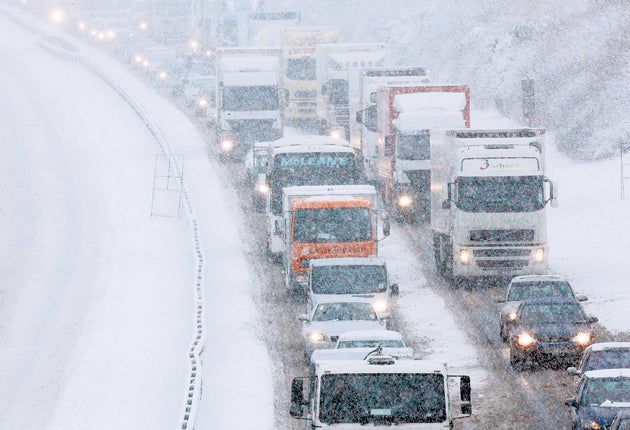Sun's magnetic field may have caused freezing winter

Your support helps us to tell the story
From reproductive rights to climate change to Big Tech, The Independent is on the ground when the story is developing. Whether it's investigating the financials of Elon Musk's pro-Trump PAC or producing our latest documentary, 'The A Word', which shines a light on the American women fighting for reproductive rights, we know how important it is to parse out the facts from the messaging.
At such a critical moment in US history, we need reporters on the ground. Your donation allows us to keep sending journalists to speak to both sides of the story.
The Independent is trusted by Americans across the entire political spectrum. And unlike many other quality news outlets, we choose not to lock Americans out of our reporting and analysis with paywalls. We believe quality journalism should be available to everyone, paid for by those who can afford it.
Your support makes all the difference.It was the coldest winter in England since 1963 – the coldest in Scotland since 1914 – and weeks of ice, snow and sub-zero temperatures from last December to March defied predictions by climate-change scientists of milder, wetter winters. So what happened?
One theory suggests that last winter's cold temperatures were part of a pattern that is set to continue because of a complex interaction between the Sun's magnetic field and the high-altitude jet stream which dominates Britain's weather system. The jet stream normally brings mild, damp westerly winds over Britain during winter but this year it went into "blocking" mode, sweeping back on itself and allowing a bitterly cold north-east wind to blow over the country, bringing ice and snow with it.
Scientists have found a link between blocking changes to the jet stream that result in colder winters and variations in the "activity" of the Sun, as measured by alterations in its magnetic field. This could mean that the UK can expect more cold winters than usual in the coming decade, despite global warming.
The researchers behind the controversial idea emphasised that their findings do not contradict the scientific consensus on man-made climate change. They said that global warming is still set to dominate the world's climate, but that the relatively small region of Britain and north-west Europe could nevertheless be in line for more frequent, colder-than-expected winters, just like the last one.
"The winter we've just had fits the trend very nicely and it was actually last winter that made us look into this," said Professor Mike Lockwood, a solar physicist at the University of Reading and the Rutherford Appleton Laboratory in Didcot, Oxfordshire, who led the study published in the journal Environmental Research Letters.
"We have found an association between variations in solar activity and changes in the temperature records of central England over the past few decades. This year's winter in the UK has been the 14th coldest in the last 160 years and yet the global average temperature for the same period has been the fifth highest. We have discovered that this kind of anomaly is significantly more common when solar activity is low."
The Sun has a roughly 11-year cycle and at its height the solar magnetic field is active and sunspots appear on the Sun's surface. But over recent years the Sun has entered an unusually dormant phase, with few sunspots and very low magnetic activity. Professor Lockwood said one effect of this low activity was that the normally high ultraviolet light from the Sun was lower than usual. This means there is less heating of the upper stratosphere over the equator, where ultraviolet light causes the creation of ozone. This has a knock-on effect on the jet stream.
It means the normal inhibition on the formation of a blocking system is lifted and the jet stream is likely to curl back on itself over Britain, bringing colder winds from the north-east to replace the damp, mild maritime air that normally comes from the south-west.
Join our commenting forum
Join thought-provoking conversations, follow other Independent readers and see their replies
0Comments